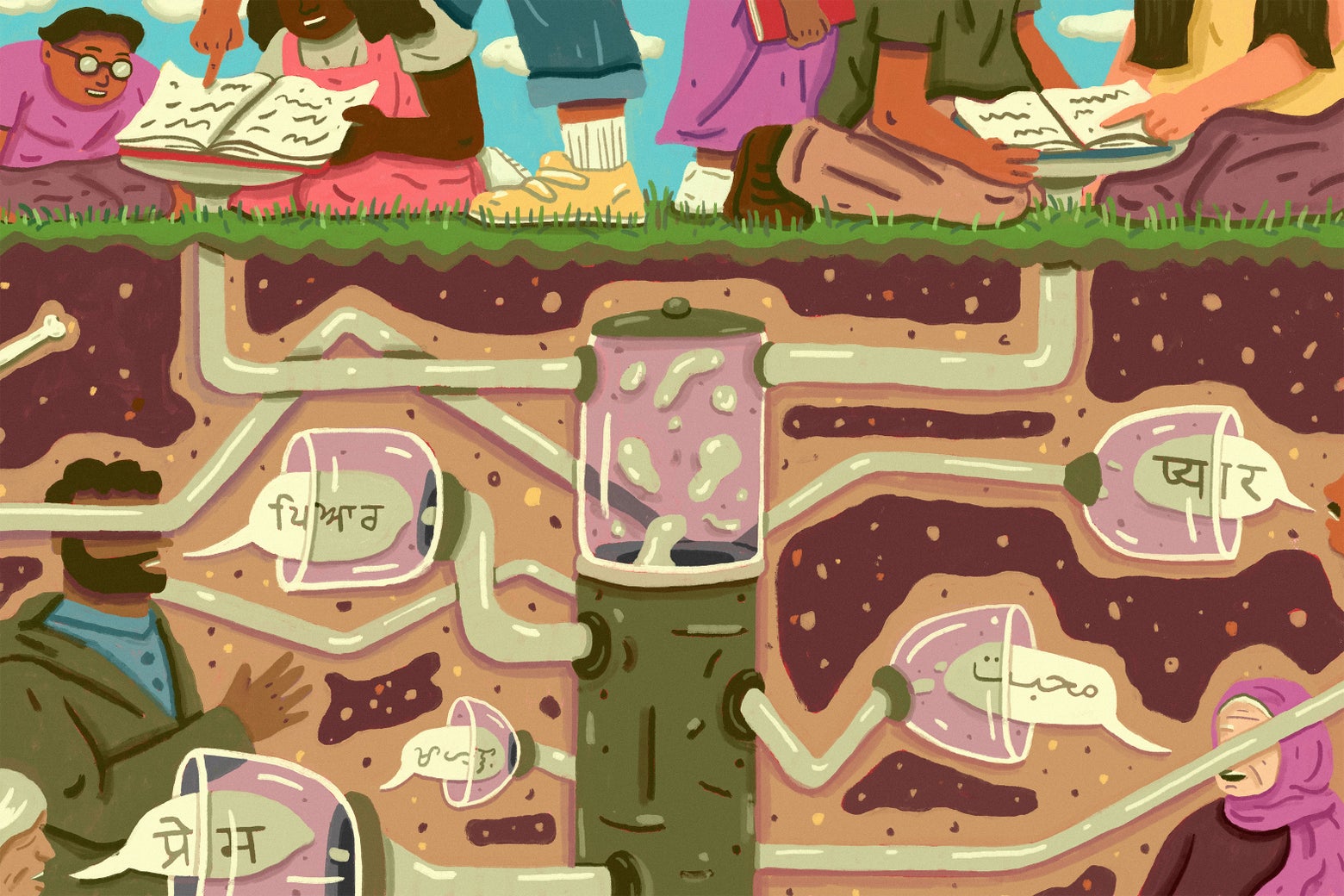ANCHORAGE, Alaska (AP) — After tidal surges and high winds from the remnants of a rare typhoon caused extensive damage to homes along Alaska’s western coast in September, the U.S. government stepped in to help residents — largely Alaska Natives — repair property damage.
Residents who opened Federal Emergency Management Agency paperwork expecting to find instructions on how to file for aid in Alaska Native languages like Yup’ik or Inupiaq instead were reading bizarre phrases.
“Tomorrow he will go hunting very early, and will (bring) nothing,” read one passage. The translator randomly added the word “Alaska” in the middle of the sentence.
“Your husband is a polar bear, skinny,” another said.
Yet another was written entirely in Inuktitut, an Indigenous language spoken in northern Canada, far from Alaska.
FEMA fired the California company hired to translate the documents once the errors became known, but the incident was an ugly reminder for Alaska Natives of the suppression of their culture and languages from decades past.
FEMA immediately took responsibility for the translation errors and corrected them, and the agency is working to make sure it doesn’t happen again, spokesperson Jaclyn Rothenberg said. No one was denied aid because of the errors.
That’s not good enough for one Alaska Native leader.
For Tara Sweeney, an Inupiaq who served as an assistant secretary of Indian Affairs in the U.S. Interior Department during the Trump administration, this was another painful reminder of steps taken to prevent Alaska Native children from speaking Indigenous languages.
“When my mother was beaten for speaking her language in school, like so many hundreds, thousands of Alaska Natives, to then have the federal government distributing literature representing that it is an Alaska Native language, I can’t even describe the emotion behind that sort of symbolism,” Sweeney said.
Sweeney called for a congressional oversight hearing to uncover how long and widespread the practice has been used throughout government.
“These government contracting translators have certainly taken advantage of the system, and they have had a profound impact, in my opinion, on vulnerable communities,” said Sweeney, whose great-grandfather, Roy Ahmaogak, invented the Inupiaq alphabet more than a half-century ago.
She said his intention was to create the characters so “our people would learn to read and write to transition from an oral history to a more tangible written history.”
U.S. Rep. Mary Peltola, who is Yup’ik and last year became the first Alaska Native elected to Congress, said it was disappointing FEMA missed the mark with these translations but didn’t call for hearings.
“I am confident FEMA will continue to make the necessary changes to be ready the next time they are called to serve our citizens,” the Democrat said.
About 1,300 people have been approved for FEMA assistance after the remnants of Typhoon Merbok created havoc as it traveled about 1,000 miles (1,609 kilometers) north through the Bering Strait, potentially affecting 21,000 residents. FEMA has paid out about $6.5 million, Rothenberg said.
Preliminary estimates put overall damage at just over $28 million, but the total is likely to rise after more assessment work is done after the spring thaw, said Jeremy Zidek, a spokesperson for the Alaska Department of Homeland Security and Emergency Management.
The poorly translated documents, which did not create delays or problems, were a small part of efforts to help people register for FEMA assistance in person, online and by phone, Zidek said.
Another factor is that while English may not be the preferred language for some residents, many are bilingual and can struggle through an English version, said Gary Holton, a University of Hawaii at Manoa linguistics professor and a former director of the Alaska Native Language Center at the University of Alaska Fairbanks.
Central Alaskan Yup’ik is the largest of the Alaska Native languages, with about 10,000 speakers in 68 villages across southwest Alaska. Children learn Yup’ik as their first language in 17 of those villages. There are about 3,000 Inupiaq speakers across northern Alaska, according to the language center.
It appears the words and phrases used in the translated documents were taken from Nikolai Vakhtin’s 2011 edition of “Yupik Eskimo Texts from the 1940s,” said John DiCandeloro, the language center's archivist.
The book is the written record of field notes collected on Russia’s Chukotka Peninsula across the Bering Strait from Alaska in the 1940s by Ekaterina Rubtsova, who interviewed residents about their daily life and culture for a historical account.
The works were later translated and made available on the language center’s website, which Holton used to investigate the origin of the mistranslated texts.
Many of the languages from the area are related but with differences, just as English is related to French or German but is not the same language, Holton said.
Holton, who has about three decades experience in Alaska Native language documentation and revitalization, searched the online archive and found “hit after hit,” words pulled right out of the Russian work and randomly placed into FEMA documents.
“They clearly just grabbed the words from the document and then just put them in some random order and gave something that looked like Yup’ik but made no sense,” he said, calling the final product a “word salad.”
He said it was offensive that an outside company appropriated the words people 80 years ago used to memorialize their lives.
“These are people’s grandparents and great-grandparents that are knowledge-keepers, are elders, and their words which they put down, expecting people to learn from, expecting people to appreciate, have just been bastardized,” Holton said.
KYUK Public Media in Bethel first reported the mistranslations.
“We make no excuses for erroneous translations, and we deeply regret any inconvenience this has caused to the local community,” Caroline Lee, the CEO of Accent on Languages, the Berkeley, California-based company that produced the mistranslated documents, said in a statement.
She said the company will refund FEMA the $5,116 it received for the work and conduct an internal review to ensure it doesn’t happen again.
Lee did not respond to follow-up questions, including how the mistaken translations occurred.
Adblock test (Why?)




